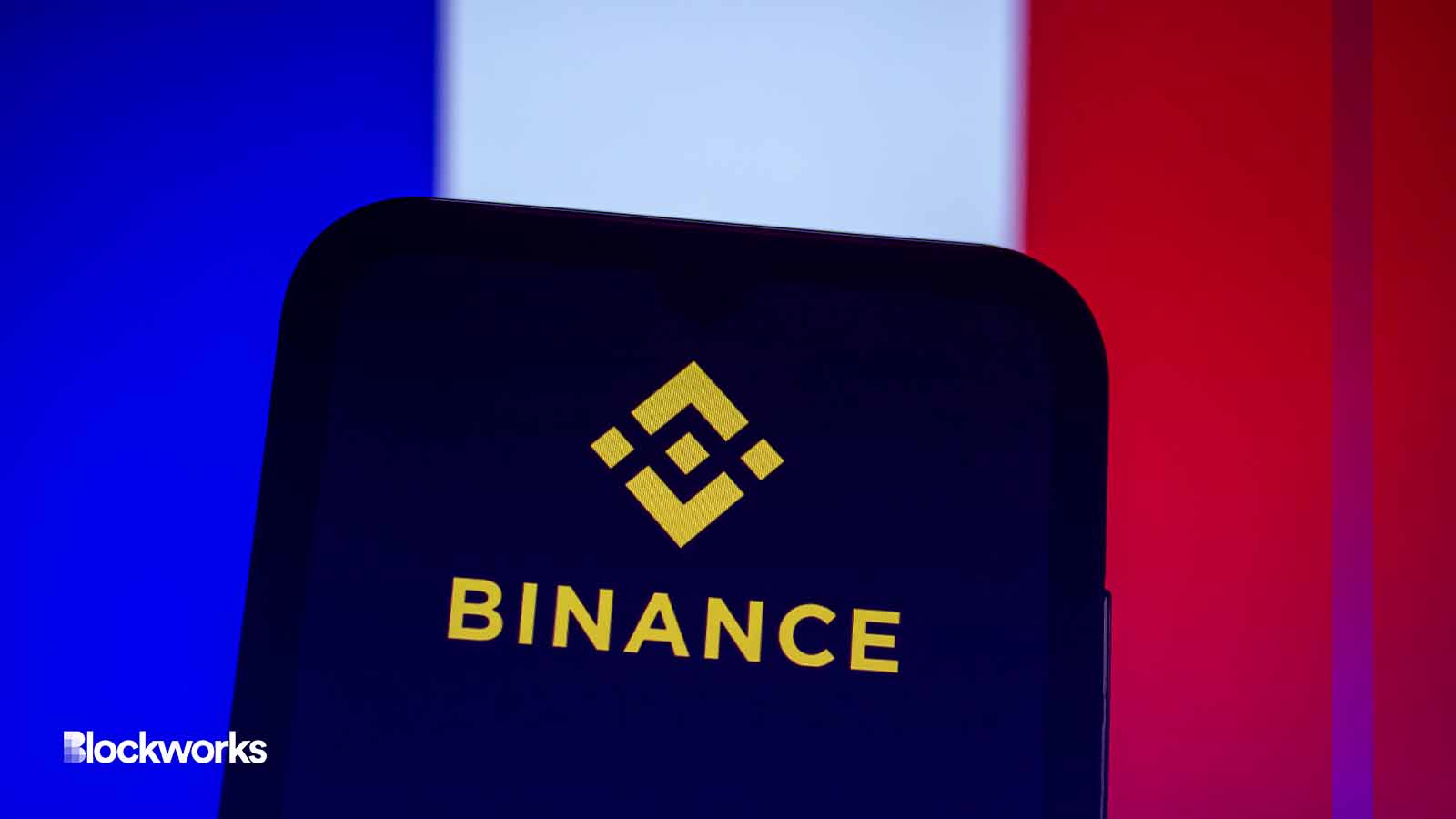Binance claims French authorities made on-site visit
A look into the lawsuits and investigations Binance is currently facing

Emre Akkoyun/Shutterstock modified by Blockworks
Binance has pushed back on reports that it’s facing yet another investigation — this time by French authorities.
In an email to Blockworks, Binance said that it had an “on-site visit last week by the relevant authorities” and was “fully collaborative” as it continues to work with regulators and law enforcement globally to ensure that it was meeting regulatory requirements.
It continued, “Binance invests considerable time and resources into cooperating with law enforcement globally. We abide by all laws in France, just as we do in every other market we operate. We will not comment on the specifics of law enforcement or regulatory investigations except to say that information about our users is held securely and only provided to government officials upon receipt of documented appropriate justification.”
In a tweet response, the crypto company clarified that it spent “considerable time” and invested resources into “cooperating with law enforcement globally.”
So let’s look at the investigations and lawsuits Binance currently faces.
What the French are investigating
According to a report from French news source Le Monde, the public prosecutors office of Paris is looking into possible “acts of aggravated money laundering” by Binance.
Le Monde reported that the Paris public prosecutors office specified that the investigation “relates on the one hand to acts of illegal exercise of the function of service provider on digital assets (PSAN), and on the other hand, acts of aggravated money laundering, by participating in investment operations, concealment, conversion, the latter being carried out by perpetrators of offenses having generated profits”
The French paper also claimed that Binance has been under investigation since February of last year.
What the SEC has claimed
Meanwhile, in the US, Binance, BAM Management, BAM Trading, and Binance CEO Changpeng Zhao were all named in a lawsuit from the SEC last week.
The SEC alleges that both Binance and BAM Trading — which, with BAM Management, oversees Binance.US — sold unregistered securities.
It also claims the Binance.US staking program is an investment contract, therefore falling under the definition of a security.
“Binance and BAM Trading have unlawfully engaged in unregistered offers and sales of crypto asset securities, including Binance’s own crypto assets called ‘BNB’ and ‘BUSD,’ as well as Binance’s profit-generating programs called ‘BNB Vault’ and ‘Simple Earn,’ and a so-called ‘staking’ investment scheme available on the Binance.US Platform,” the filing said.
On top of selling unregistered securities, Binance and Binance.US were operating as unregistered exchanges, according to the SEC.
They point to a former Binance executive saying, “we are operating as a fking unlicensed securites exchange in the USA, bro.”
Another allegation is that Binance commingled customer funds, and therefore put US customers at risk.
“Through accounts owned and controlled by Zhao and Binance, billions of U.S. dollars of customer funds from both Binance Platforms were commingled in an account held by a Zhao-controlled entity,” the filing continued.
There are fraud allegations throughout the 100-plus page lawsuit as well, with the SEC pointing to internal communications as proof that Binance was soliciting US customers and was attempting to find backdoors for some US consumers, dubbed VIPs by Binance executives.
Binance has denied the allegations of commingling user assets and pushed back against the lawsuit.
What the CFTC claimed
Binance is facing not one but two lawsuits in the US.
In March, both Binance and Zhao — alongside former chief compliance officer Samuel Lim — were sued by the Commodities and Futures Trading Commission.
The CFTC alleges that the defendants “solicited and accepted orders, accepted property to margin, and operated a facility for the trading of futures, options, swaps, and leveraged retail commodity transactions involving digital assets that are commodities including bitcoin (BTC), ether (ETH), and litecoin (LTC) for persons in the United States.”
CFTC, similarly to the SEC, claims that Binance knew it was dodging compliance but sought to “keep the money flowing.”
The CFTC quoted Lim as knowingly skirting laws relating to KYC — or know your customer — saying in 2019, “Cz doesn’t wanna do us kyc on .com.”
Both the US and France have KYC laws, which require financial service providers and financial institutions to establish the identity of a customer and identify risk factors.
Get the news in your inbox. Explore Blockworks newsletters:
- The Breakdown: Decoding crypto and the markets. Daily.
- 0xResearch: Alpha in your inbox. Think like an analyst.






